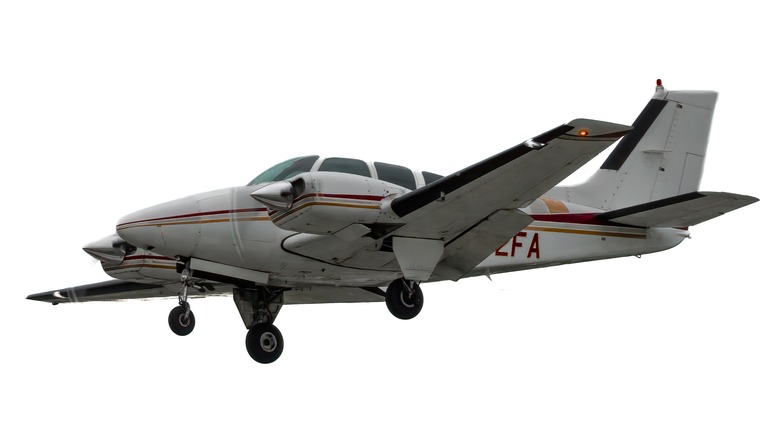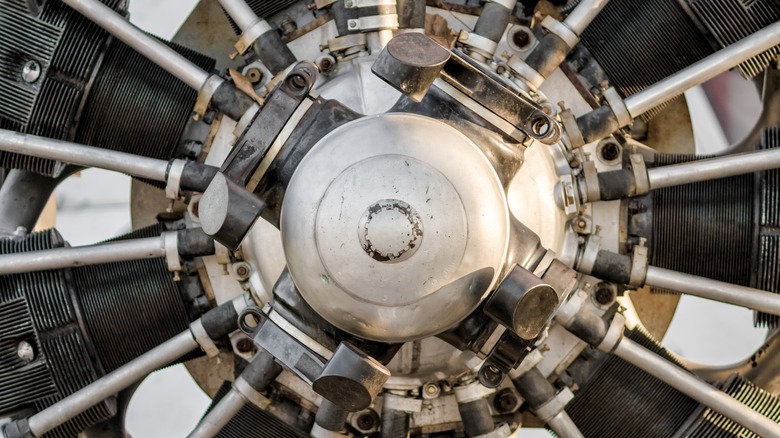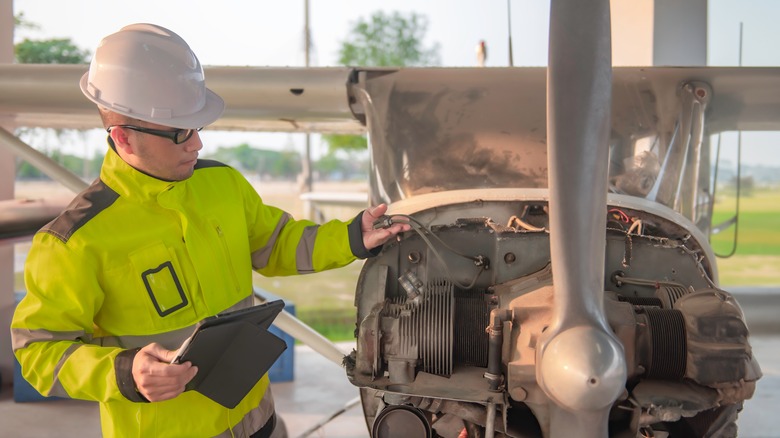Can Airplane Engines Run On Diesel Fuel?
Just as with the automotive industry, there are a variety of aircraft engines designed to run on various types of fuels. Even electric planes are something we're likely to see more of in the future. But what about diesel? It's common in trucks and other powerful, often cargo-hauling vehicles, so it would make sense for airplanes too, right?
The answer is a touch complicated. Factors like burn rates, operating temperatures, and other fuel performance details are important when it comes to all engines and it's no exception for aircraft. In fact, due to the nature of air travel and distribution, these considerations can be considerably more important.
Ultimately, yes, airplane engines can run on diesel fuel. With a very large metaphorical asterisk next to that statement. Much like it's not a great idea to put diesel into a regular gas-powered car, aircraft engines are built with particular kinds of fuel in mind, and that includes diesel — or something other than diesel.
Diesel in airplanes
The thing is, diesel aircraft engines can run on diesel fuel, because that's what they were designed to do. One of the most popular single-engine planes, the Piper PA-28, offers a diesel-powered model. And as Flying Magazine points out, diesel airplane engines also tend to be more economical and fuel efficient than their Jet-A (basically consumer-grade jet fuel) counterparts.
It's just that the general aviation (GA) market in the U.S. has been sticking primarily with low-lead avgas (aviation fuel for smaller airplanes) or Jet-A engines instead. There are some GA aircraft that can accept diesel and are also certified by the FAA — like the Tecnam P2010 TDI — but they're currently not the majority.
So while there are diesel airplanes out there, they're still not as prevalent in the U.S. as non-diesel options yet. Also, while there might arguably be some wiggle room for diesel in GA aircraft, BP strongly recommends not using it as a substitute for jet fuel unless the aircraft is specifically built to allow for it, like that Tecnam P2010 TDI.
What happens if you use diesel, regardless?
Before we continue, a reminder: Whether you're driving a car or piloting an airplane it is never a good idea to use any kind of fuel other than what is recommended (or required) by the manufacturer. Using incompatible fuel can often, at best, result in reduced engine performance. At worst, it may damage the engine outright — and you do not want that happening when you're on the road or in the air.
If, hypothetically, diesel was used in an aircraft engine that wasn't built for it, weight would be one of the first issues. Despite being more efficient, diesel is heavier, and, depending on the amount used, could reduce the overall payload capacity by over 100 pounds.
Diesel is also more susceptible to colder temperatures, which is usually mitigated with a mixture of additives but said additives aren't always going to be mixed in based on the time of year, local markets, what refinery produced it, etc. And without those added elements any diesel in the engine could start to freeze at higher altitudes (where temperatures drop dramatically) and create blockages.


